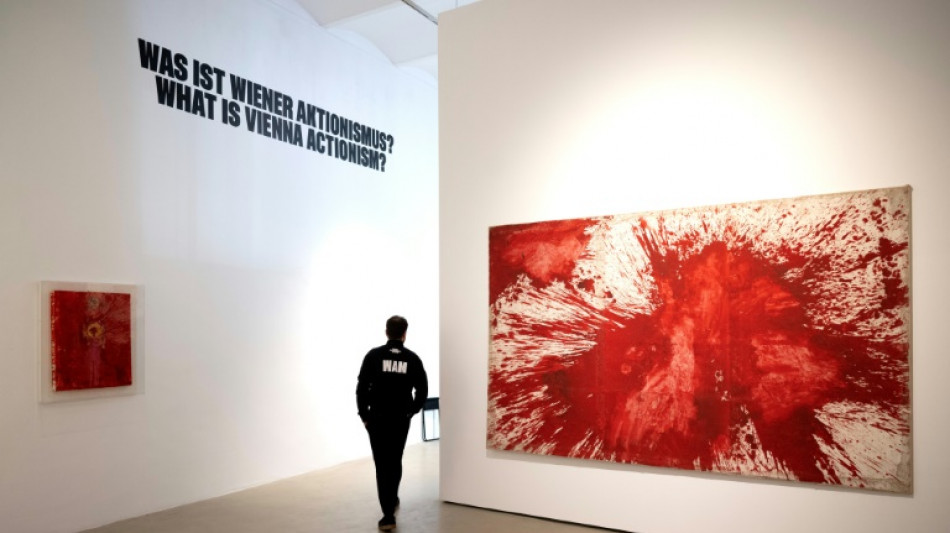
Vienna gets first museum on shock 'Actionist' art movement

Vienna's first museum on the shock "Actionist" art movement opens its doors on Friday, aiming to highlight the work of its four key artists who long faced contempt and even persecution for their radical actions.
With their performances in the 1960s, Vienna's "Actionists" -- Guenter Brus, Otto Muehl, Hermann Nitsch and Rudolf Schwarzkogler -- pushed the limits, not shying away from using blood, urine and excrement as they defied the confines of traditional painting.
"There is hardly anything comparable to the radicalism of the Viennese Actionists," said art historian Eva Badura-Triska.
She picked the close to 100 works on display for the opening of the Museum of Vienna Actionism (WAM).
"They dealt with both the body and the human psyche... very, very intensely and without taboos," she told AFP.
The works -- mainly photos of the four artists' performances but also some of their paintings and sketches -- are just a small part of the WAM's collection of 17,000 exhibits.
The private museum in downtown Vienna is an initiative of several collectors. Plans for it started two years ago, and it has a yearly budget of 700,000 euros ($770,000).
"We hope to ensure that Viennese Actionism -- or the artistic quality of Viennese Actionism -- reaches a wider range of people," WAM director Julia Moebus-Puck told AFP.
In the 1960s and 70s, all four artists -- who grew up in the post-World War II years -- were "outlaws, socially ostracised people, who were sometimes arrested," Moebus-Puck added.
"That changed a lot in the 80s and especially in the 90s, when they were given a big stage", at first through international exhibitions before being recognised in Austria too, she added.
Brus, the last surviving key member of the group, died last month at the age of 85 in the city of Graz in southern Austria.
Graz already hosts a museum in his name. Nitsch also has several museums devoted to his work, including one in Italy.
Besides his art work, Muehl also grabbed headlines for creating a sect-like commune in 1972, which ended in chaos in 1991.
Muehl was jailed for seven years for sex with minors, rape and drug offences. He died in 2013 at the age of 87.
R.Zarlengo--PV
